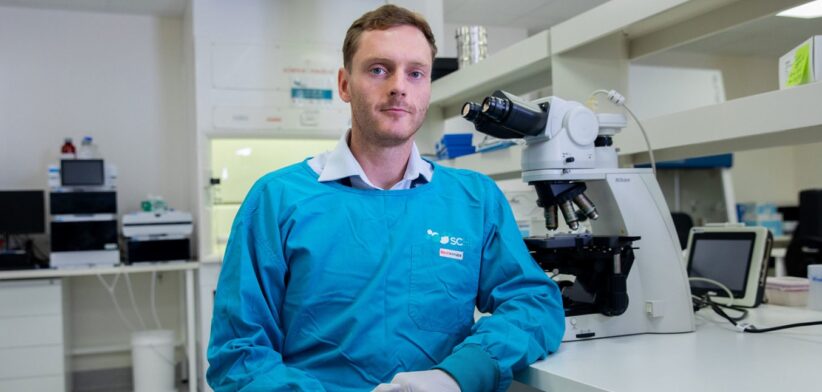Two South-East Queensland universities have joined forces to create a new research hub on the Sunshine Coast.
Based at the Sunshine Coast Health Institute (SCHI), the Hub for Advanced Spatial Biology Analytics (HASBA) is a partnership between the University of the Sunshine Coast (UniSC) and Griffith University.
Computational cancer biologist Dr Lochlan Fennell, from UniSc, said the hub would combine world-class clinical, molecular, and computational expertise.
Dr Fennell said it would spearhead advances in the treatment of conditions such as cancer, chronic disease and immune disorders.
He said spatial biology worked by mapping where cells and molecules were located in relation to one another within a specific part of the body – and how they communicated.
“People have been using factors like infrastructure, terrain and population density to predict and map things like flood risk and crime for years now. Spatial biology is doing the same thing for the body.”
Griffith University Associate Professor Nicholas West said spatial biology techniques had transformed the understanding of disease processes.
“It’s already revolutionised our treatment of things like melanoma, which used to be a death sentence,” Associate Professor West said.
“Spatial biology presents new opportunities for the development of targeted therapies to improve patient outcomes, however, the complexity and enormity of this new data modality pose significant challenges.”
Dr Fennell said, while headquartered at SCHI, HASBA’s functions spanned multiple institutions.
He said tissue samples were processed at Griffith University’s state-of-the-art lab facilities, before undergoing expert data analysis by researchers both there, and at UniSC’s Centre of Bioinnovation and School of Health.
“The sheer volume of data is as enormous as it is complex. If you have samples from 10 patients, each of those samples could have 400,000 cells with 25,000 genes in each cell,” Dr Fennell said.








